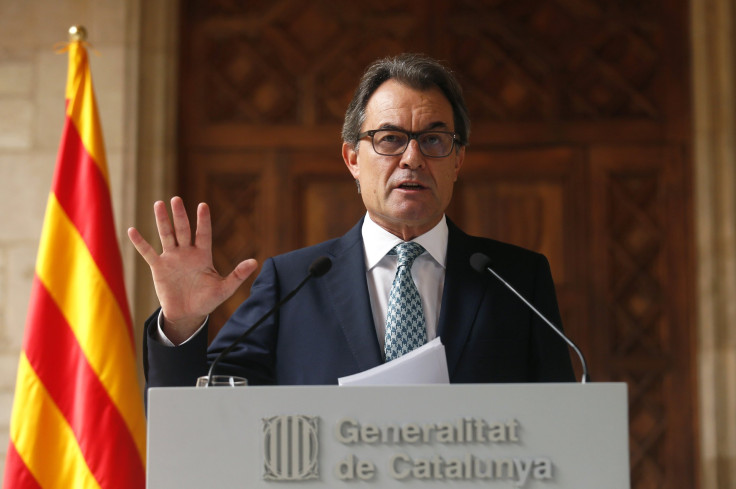Catalonian Separatist Coalition Can't Agree On Leader

Catalonia's independence movement suffered a setback Sunday when it failed to agree on a new leader, potentially forcing the region of northeastern Spain into a new election. Separatist parties won a majority of seats in September's regional election, but divisions between the groups undermined their prospects of pushing forward.
The Catalan nationalist parties struck a tentative deal last Tuesday to form a government in Barcelona. But the agreement faltered Sunday when the anti-capitalist CUP, a minority partner in the pro-independence coalition, failed to reach a decision on its partner's candidate to lead the regional government, Artur Mas, who has been in power there since 2010.
The divided vote — in which 1,515 CUP members voted for Mas and the same number voted against him — raises the possibility that Catalonia will need to hold new elections, which would be the fourth since 2010.
The CUP plans to meet again Jan. 2, but if the issue remains undecided by a Jan. 9 deadline, a new election will be called automatically.
The deadlock in Catalonia comes as Spain faces weeks of uncertainty at a national level following an inconclusive general election. Acting Prime Minister Mariano Rajoy, who had defended Spanish unity and sought to block the Catalonian independence drive over the past four years, lost his majority in the national election and is struggling to form a government. The traditional two-party domination of Spain fractured into four major parties in the election.
© Copyright IBTimes 2025. All rights reserved.





















